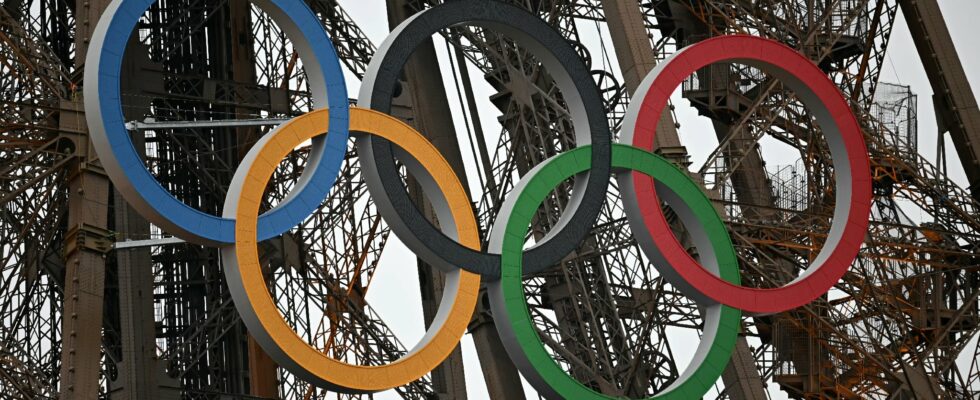And if Paris kept the air of an Olympic city over time? In an interview given to the regional daily West FranceSaturday August 31, Anne Hidalgo announced that Paris would keep some of the Olympic facilities. “There are three symbols that we must look at so that they can remain as a legacy,” she said.
Starting with the Olympic rings fixed to the Eiffel Tower. “As mayor of Paris, the decision is up to me and I have the agreement of the IOC. So yes, they will remain on the Eiffel Tower,” she explained about the five rings hung at the beginning of June on the emblematic monument of the capital. But adjustments are to be expected. New rings, “as big but lighter,” will be fixed “as quickly as possible” on the iron tower, the rings currently installed being “too heavy” to “resist for a long time,” she specified. The mayor of Paris also explained that these new rings will have to be concealable when the Eiffel Tower is lit up to pay a special tribute, “which is not necessarily in the neutrality that the IOC imposes on itself.”
Basin and statues
The socialist elected official also expressed her wish to install along the rue de la Chapelle, a “symbolic place” in the 18th arrondissement of Paris, the statues of the ten French women who appeared in the “sisterhood” painting on the Seine during the opening ceremony of the Olympic Games. “It is a major avenue that goes towards Saint-Denis and the basilica of the kings of France. It is a strong symbol, I discussed it with Tony Estanguet who finds the idea excellent,” she added.
The elected official also reaffirmed her desire to keep the Olympic cauldron, “an inseparable object of the Paris Games”, at the Tuileries. But the decision nevertheless rests with the President of the Republic, Emmanuel Macron, the site being state property.
Swimming in the Seine
The mayor of Paris has promised to make the cleanliness of the Seine, where triathlon events were held in particular, a legacy of the Olympic Games. “Paris will never be the same again,” she assured when taking stock of the Games, before recalling their “legacy” left in the capital, including open water swimming in the Seine, which should be authorized on the Marie arm, at Bercy and on the Grenelle arm by the summer of 2025. It will have required the culmination of a titanic project: more than three years of work and 1.4 billion euros of investment were necessary to reduce pollution in the river by 75%.
“The Seine has been depolluted and will remain clean,” Anne Hidalgo said the day after the closing ceremony of the Olympic Games. The mayor of Paris had also swum in the Seine again on Tuesday morning, on the eve of the opening ceremony of the Paralympic Games and a few days before the first para-triathlon events, scheduled for this Sunday, September 1. However, all of the events have been postponed by one day, to Monday, August 2, due to a “deterioration in the quality of the water in the Seine” due to the weather, the organizers announced on the night of Saturday to Sunday.
50 km/h ring road
Another battle won for the mayor of Paris: the change to 50 kilometers per hour (compared to 70 kilometers per hour today) of the Paris ring road. A showdown with the government took place, but it is she who has the final decision. The measure should be effective as early as October. “It is a public health measure for the 500,000 people who live near the ring road,” declared Anne Hidalgo in West France.
The mayor of Paris also had the final say on the issue of ending car traffic at the foot of the Eiffel Tower. “I confirm that cars will not return to the Eiffel Tower at the end of the Games,” she said, specifying that “as requested by the prefecture, we will allow the passage of security and emergency vehicles by creating a lane reserved for them as well as for buses and taxis.”
As for the lane dedicated to the Olympic Games, it is up to the State to decide its future. “It is not a question of removing a lane from the ring road, but of maintaining a carpooling lane that would be reserved for taxis, individuals traveling in groups and public transport,” explained the mayor of Paris.
